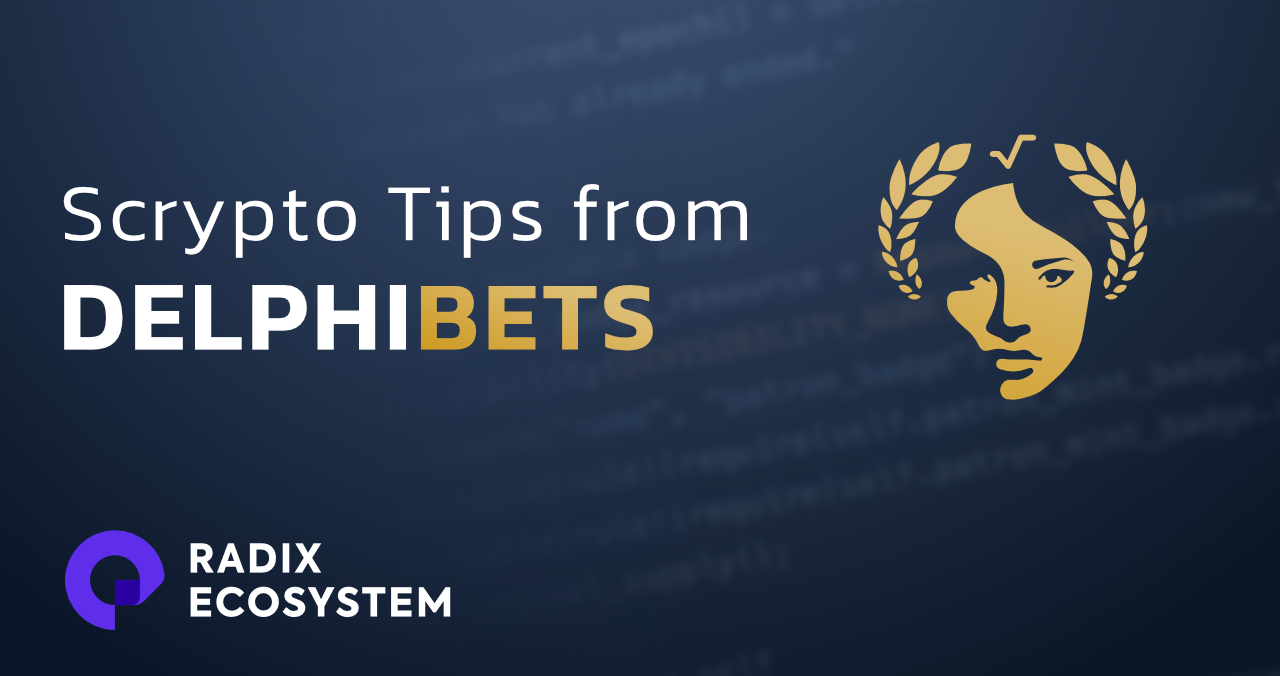Chris is one of the Web3 pioneers contributing to the attraction of the Radix ecosystem. As part of DELPHIBETS, the innovative Web3 prediction protocol to be exclusively deployed on Radix, he has dedicated himself to the challenging task of outdoing centralized betting providers. The Litepaper V0.5 and the recently published UI Showcase of DELPHIBETS V1 are promising demonstrations of how DELPHIBETS’ innovative concept aims to meet this challenge.
Chris got a degree in Mathematics, specializing in abstract algebra and conducted research in this area. Computer experiments laid the foundation for his theoretical investigations. As software engineer, focused on reverse engineering tools that exploit 3D point cloud data, he has gained important foundational knowledge. He developed and maintained a large C++ based algorithmic codebase, which finds applications in various frontends. This experience has also provided him with valuable exposure to working in a cloud-based microservice architecture.
During 2019, the crypto space captivated him, and he soon felt the urge to become actively involved in this exciting field. He believes that cryptocurrency and blockchain technology are life-changing innovations and is excited to contribute to their development. Choosing Radix/Scrypto as his platform of choice, he embraced this DLT wholeheartedly and has no regrets about his decision.
“Coming from C++ to Rust gave me some headaches at the beginning, as I had to adjust to Rust's strict rules on ownership and borrowing and adapt to the new syntax; however, with persistence and practice, I now feel comfortable navigating in both worlds.”
Currently, he is developing the Scrypto backend for DELPHIBETS which will come up with multiple betting types and interactive social features. Alongside Peer-2-Peer (P2P) betting, the protocol utilizes complex automated market maker (AMM) and pari-mutuel mechanisms that ensure an engaging, responsive, and frictionless user experience.
Here are some tips from Chris to start your Scrypto journey right:
If you come from another programming language, don’t dwell on the Rust specifics too much at the beginning. Focus on getting your program running, but be willing to revisit your code later on. Over time, as your knowledge of Rust grows, you'll naturally adopt more idiomatic and "Rustian" approaches to programming. Embrace the learning journey and allow yourself the flexibility to improve your code as you become more comfortable with the language.
The Radix GitHub repository is a great source of inspiration. You can find lots of examples that provide insights into how Scrypto is intended to be used. Exploring the repository will not only aid you in understanding the implementation, but also help you learn how to write tests and structure your blueprints effectively. Leveraging this valuable resource can accelerate your learning.
If you can't find an answer in the Radix GitHub repository, chances are good that you'll find help or inspiration in the Radix Discord developer channels. The Radix community is vibrant and supportive, and the developer channels offer a platform to ask questions, share ideas, and learn from others.
If you have any questions, you can reach out Chris on telegram!
delphibets.com
@delphibets
@delphibets
